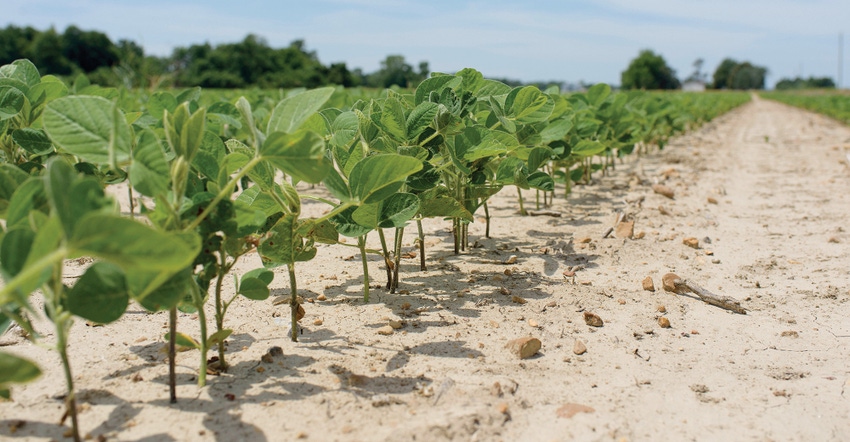
During a recent informal meeting with growers in one of the southern Mississippi counties, one of the producers asked one of the basic questions that cross our minds almost every year, and especially in years like this one when there are a lot of early days that are suitable for field work. The question was “How early is too early for planting soybeans?”
When he asked this question I quickly recalled the summary of the years of work done by Dr. Larry Heatherly at Stoneville, Miss., which described the results of his work with the Early Soybean Planting System (ESPS). I will not guess at how many years of data went into this summary, but I know that it was enough years to allow for much of the normal variation in our weather pattern.
When we look at the results of this work, we can quickly see the impact it had on our planting practices today in that we normally suggest that soybeans be planted in that mid-April window when the highest yield averages were achieved. However, this does not mean that soybeans can’t be planted a lot earlier than that, or later for that matter.
When we think about early planting of crops, the first thing that crosses our minds is the possibility of winterkill, but that is actually less of a problem for corn or even soybeans than we might tend to believe. Cotton, on the other hand, is very sensitive to winterkill since it can be destroyed by just a light frost during the early growth stages.
Corn has an advantage over the broadleaf crops in that the meristem or growing point of the plant is below the surface of the soil, especially when the seed are placed at the proper depth of at least 2 inches. Corn plants can be frost-burned to the point of almost total loss of the above ground portion and then reemerge from the undamaged growing point to produce healthy plants and good yields.
Survive cold weather
Soybean plants also can tolerate quite a bit of cold weather if they have emerged. During the time that growers were experimenting with ESPS, quite a few growers planted soybeans in mid- to late March. These fields would often survive frost to recover and produce good yields, as can be seen from the result of the planting date research done by Dr. Heatherly and his associates.
The other factor for soybean plants is that when planted earlier than the optimal dates in April, many varieties will begin flowering soon after emergence because of the day-length trigger that causes these plants to initiate their reproductive phase. These plants will often be shorter in height than they would have been if planted at the “correct” time. The internodes will be much shorter, but in most cases the yield will be good.
A problem that is sometimes seen with planting on these very early dates is that pods will be set so low on the plant that they are difficult to harvest. I have seen situations in which significant loss was caused by this problem.
So the real question is not so much how early is too early, but how early is too early for soybean plants to grow and produce their seeds normally and be harvested efficiently? That date is in what we sometimes refer to as the “sweet spot” in mid-April. And from what I have seen through the years, this applies to both MG4 and MG5 varieties.
As with any crop, varieties do vary in their reaction to planting date as well as other factors when they are planted in the “real world”. This is the reason I suggest that producers not only study the variety trials but also try varieties on their own farms to prove their adaptation to the soils, weather, and production practices there. Let the plants tell you themselves what they prefer.
About the Author(s)
You May Also Like




